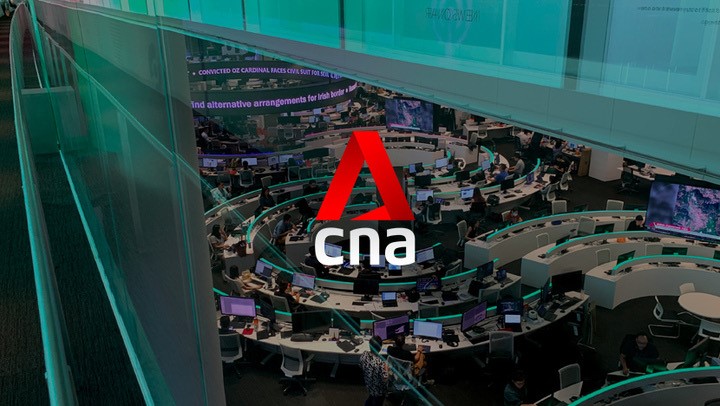By Sylvia Mishra
President Barack Obama’s visit to India to attend the Republic Day celebrations is rich in symbolism and has political and diplomatic significance. This is the first time that the President of the United States is the chief guest in India’s Republic Day parade. Obama is also the first American President to visit India twice during his tenure. After a period of drift and unpleasantness, the expectations for the bilateral relationship have rapidly risen since the election of a new government in India last May. Both Obama and Prime Minister Narendra Modi have seized the moment to reinvigourate the bilateral ties. If Modi has put America at the very centre of his dynamic foreign policy strategy, Obama appears eager to work with what is undoubtedly a more vigorous and action-oriented government in Delhi. As Obama told an Indian magazine before his arrival in Delhi the “stars are aligned to finally realise” the long shared vision for a deeper partnership.
The visit is expected to galvanise the bilateral relations, embarking on ‘fast paced engagement’ to elevate Indo-US strategic partnership to the next level. Both the countries have signaled the political will to produce some tangible outcomes from the second summit meeting between the two leaders in less than four months. Four areas – economic, defence, nuclear and climate change are – are likely to see concrete steps forward during Obama’s three-day sojourn in Delhi.
Enhanced economic cooperation
The renewed growth in the US and the launch of long overdue economic reforms in India have set the stage for some significant steps forward in areas relating to economc cooperation, trade and investment. The growing frustration in America about dealing with Indian economic policy making in the second term of the UPA government has given place to hopes about Modi’s promise to significantly improve the ease of doing business in India and create conditions for economic growth and foreign direct investment. Recently, the two countries were successful in negotiating an arrangement to address India’s concerns about food security in the context of multilateral trade negotiations, reviving the stalled World Trade Organisation (WTO) trade facilitation. It is likely that both the countries would also discuss issues surrounding property rights regime thereby, developing a common framework for addressing their long-standing differences on patent protection. As India and US near $100 billion in bilateral trade, there has been sustained discussions on both sides to develop a bilateral investment treaty to simultaneously help provide a framework for American investors. The two countries may also explore the prospects for the negotiation of a Bilateral Investment Treaty (BIT). There are also ongoing talks of finalising a framework to resolve the cases of transfer pricing due to differences between tax authorities of both countries. President Obama is also expected to be meeting and discussing with India-US CEOs during his visit.
Extending scope of defence cooperation
It is expected that both the countries would renew the Framework of Defence Cooperation that was signed in 2005 and is due to expire this year. Media reports have suggested that the new agreement will be bolder than the previous one and bring greater purposefulness to joint military exercises, intelligence sharing, cooperation with third parties, and policy consultations between the civilian leaderships of the two defence establishments. There will be particular emphasis on operationalising the Defence Trade and Technology Initiative (DTTI) by announcing the co production of a number of weapons systems. The DTTI launched under the previous government now dovetails nicely with Modi’s emphasis on “make in India” and the new government’s determination to strengthen India’s domestic defence industrial base by encouraging the participation of domestic private sector and foreign arms companies.
Climate change and clean energy
Both the countries would be exploring opportunities to enhance bilateral partnership on climate change by creating policy frameworks of introducing clean energy, promoting platforms such as CLEAN (Clean Energy Access Network) and phasing downhydroflurocarbons(HFCs). Obama’s India visit is expected to operationalise US-India Partnership for Climate Resilience announced during PM Modi’s visit to the US last September. It is unlikely that India would accede to any US-initiated climate deal similar to US-China bilateral agreement. While China’s industrialisation might have peaked, India’s future depends on further expansion of its power generation. The focus, instead, is likely to be on finding a way to rapidly expand renewable energy production in India and reduce the weight of coal in India’s future energy mix with American assistance and technology transfer.
Making headway to resolve the nuclear logjam
India and the US are expected to engage in discussions that would break the gridlock over India’s nuclear liability law that now prevents American participation in India’s atomic energy programme. Intensive negotiations in the last few weeks have explored ways to work around the stringent provisions of the Indian law that expanded the burdens on suppliers of equipment to India’s nuclear programme. If Washington is focused on liability issues, India wants America to demonstrate greater flexibility on the arrangements for external safeguards on the nuclear programe and strongly support India’s membership of the various non-proliferation regimes including the Nuclear Supplies Group (NSG) and the Missile Technology Control Regime (MTCR). Progress on the three fronts would help realise the full promise of the historic civil nuclear initiative that the two governments had unveiled in 2005.
Apart from economic, defence, nuclear and energy issues, both the leaders are also expected to engage in discussions over a gamut of issues ranging from maritime cooperation in the Indo-Pacific, investments in smart cities and industrial hubs, collaboration and partnership in health, higher education and research, solutions to urban issues and cyber security challenges among others.








